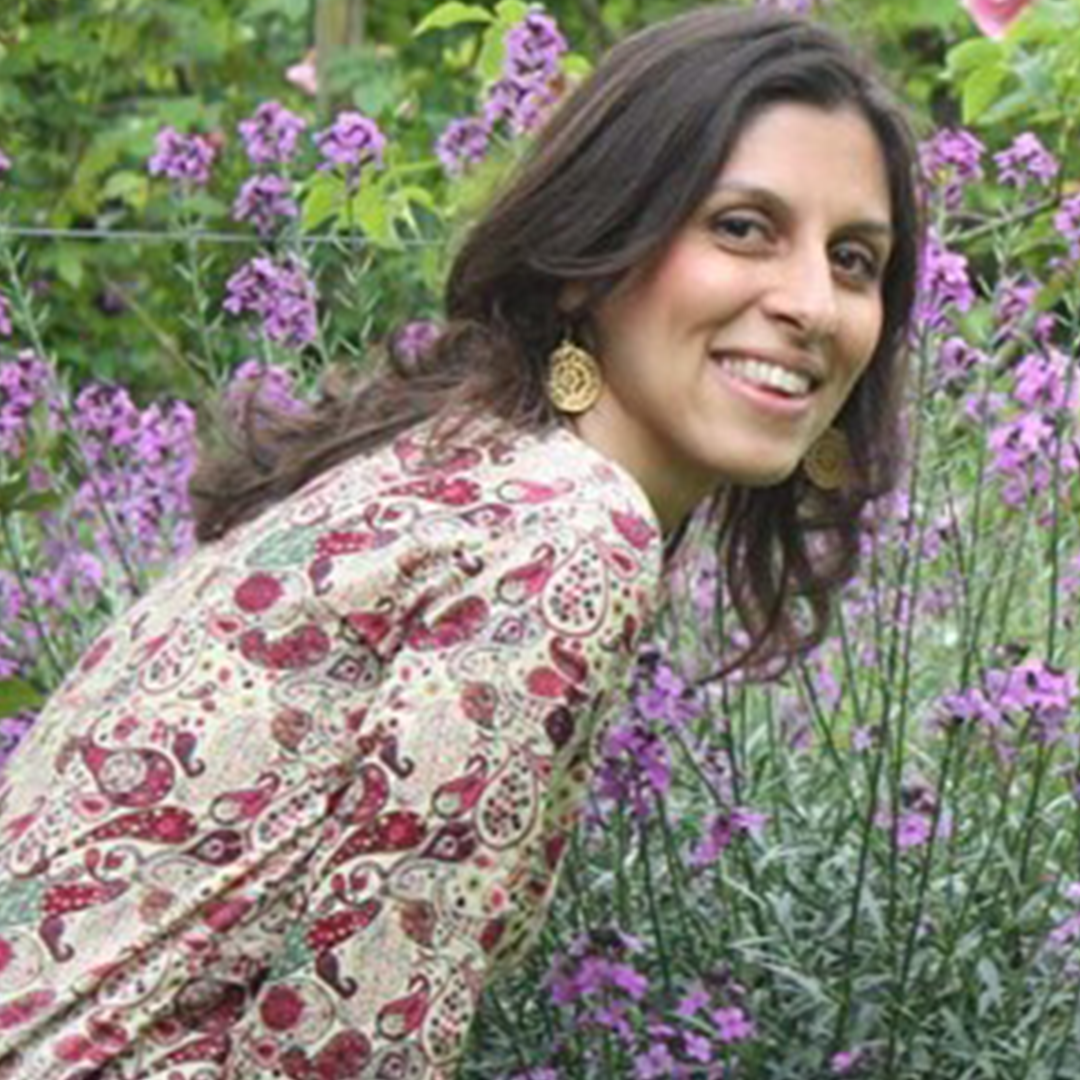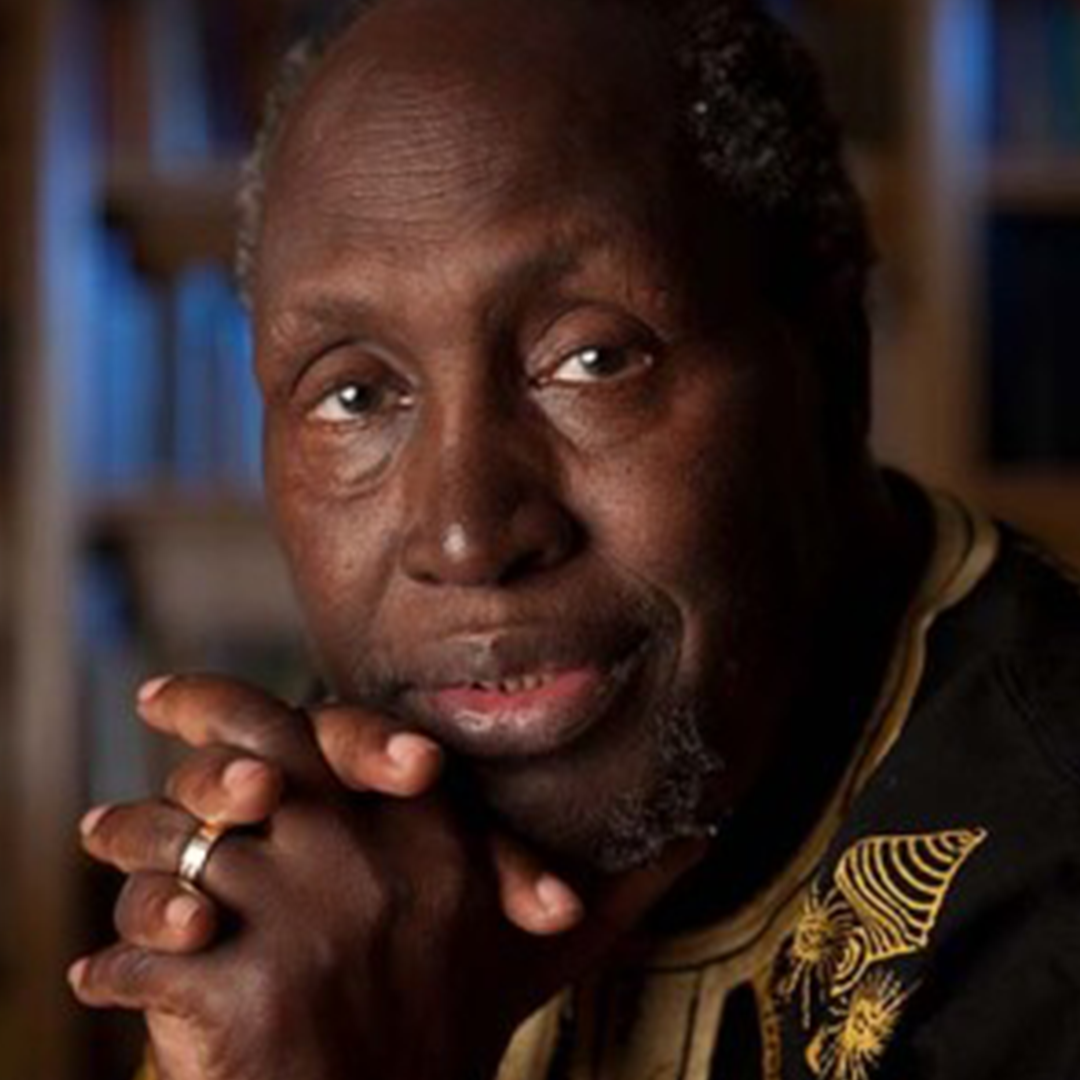The age of unreason
FEATURING

Ian Rankin
Author

Nazanin Zaghari-Ratcliffe
Poet

Ngũgĩ wa Thiong'o
Writer and professor
FEATURING

Author

Poet

Writer and professor
[vc_row][vc_column][vc_single_image image=”99700″ img_size=”full” add_caption=”yes” alignment=”center”][vc_column_text]Fifty-three Commonwealth heads of government are meeting for a summit in London this week. Lord Ahmad of Wimbledon, the UK Minister of State for the Commonwealth, lauded it as a unique network of 53 states with a responsibility to exert global influence based on a shared commitment to democracy, the rule of law and good governance as enshrined in the Commonwealth Charter of 2013.
But the record of Commonwealth countries concerning the rising number of killings of journalists — whose work holds a mirror up to the societies they live in – points to a dismal failure by the authorities in some member states to protect the lives of journalists targeted for their work. UN statistics also show that in all but a few cases the killers are shielded from facing justice by a climate of judicial impunity. Where is the rule of law in that?
In the five years from the start of 2013 to the end of 2017 as many as 57 journalists in Commonwealth countries were killed in the course of their work, according to UNESCO, the UN’s agency with a mandate to promote freedom of expression.
Most were killed to stop them from publishing reports into abuses of power, crime or corruption, often linked to public figures or law-enforcement officials. Among the recent shocking murders of journalists are those of editor and journalist Gauri Lankesh, shot outside her home in Bangalore, India last September, and Daphne Caruana Galizia, Malta’s best-known investigative journalist, killed in a car bombing one month later.
Yes, Commonwealth countries like India have pioneered some of the world’s most liberal Right to Information laws, and all member states are publicly committed to democratic standards including the separation of powers, independent courts and the rule of law.
Yet Commonwealth governments have evaded the chorus of demands for them to take determined actions to confront the pattern of violent assaults and other arbitrary actions aimed at silencing journalists and news media whose role is to inform the public. The London summit is the right time for them to put this on their agenda.
Luckily the Commonwealth has vigorous civil society organisations which already monitor cases of violence and intimidation against journalists and others who document abuses of civil and political rights. The Commonwealth Charter gives a mandate for strong action – despite the reluctance of some member states — by acknowledging the ‘surge in popular demands for democracy and human rights’.
UNESCO’s figures give this revealing breakdown of the 57 killings of journalists in Commonwealth countries in the five years up to the end of 2017: Pakistan 23, India 18, Bangladesh 8, Nigeria 3, and one each in Kenya, Malta, South Africa, Tanzania and Uganda.
Even more troubling, perhaps, is the picture that emerges from UNESCO’s records on the lack of effective judicial follow-ups in countries where journalists have been killed. The figures are based on states’ replies, made on a voluntary basis, to requests for information made by the Director-General of UNESCO after every verified killing.
The latest official report published by the Director-General of UNESCO recorded state authorities’ responses to killings of journalists during the ten-year period from 2006 to 2015. In that decade 104 journalists were killed in eight Commonwealth (including 9 journalists killed during Sri Lanka’s civil war up to 2009). Those statistics — based on information supplied by the governments concerned — fail to record a single case in which the perpetrators were brought to justice. Not one.
The figures are incomplete because too many states routinely fail to send back information about prosecutions, despite persistent requests from the Director-General of UNESCO. Further research shows that a handful of journalists’ killings in Commonwealth states have led to successful prosecutions – for example, in the cases of TV journalist Wali Khan Babar, killed in Pakistan in 2013, and Gautam Das, a Bangladeshi crime reporter killed in 2005.
A first step towards building confidence would be for all Commonwealth states to pledge to open investigations into the scores of unresolved cases and report any progress to the UN.
Journalists are only one of many categories of people who may face violence or persecution in Commonwealth countries, with all their diversity and ethnic and political tensions. But half a dozen United Nations resolutions adopted since 2012 have recognised that journalists face special dangers because of their work and deserve protection in order to counter corruption and abuses of democratic rights.
In advance of the London summit a coalition of grassroots Commonwealth professional organisations has come together to urge government leaders at the summit to face up to this stain on the organisation’s record. The Commonwealth Journalists Association joins the Commonwealth’s impressive networks of lawyers, legal educators, parliamentarians, academics and human rights advocates in putting forward a balanced and practical set of Commonwealth Principles on Freedom of Expression and the Role of the Media in Good Governance.
The Principles are written guidelines for democratic rules of engagement, so to speak, between the media and the parliament, judiciary and executive. The Principles will not be legally binding as Commonwealth states have made clear that would be anathema to them. But can at least serve as a manual of good practice to move the countries of the Commonwealth towards ending the scourge of impunity and fulfilling their public commitment to protect the media’s right to report on public affairs.
The heads of government meeting in London’s royal palaces this week should realise that if the Commonwealth cannot be part of the solution it may well be part of the problem.
[/vc_column_text][/vc_column][/vc_row][vc_row][vc_column width=”1/4″][vc_icon icon_fontawesome=”fa fa-share-alt” color=”black” background_style=”rounded” size=”xl” align=”right”][/vc_column][vc_column width=”3/4″][vc_column_text]The Commonwealth Principles on freedom of expression and the role of the media in good governance was published on April 11. The signatory organisations are the CJA, the Institute of Commonwealth Studies, Commonwealth Lawyers Association, Commonwealth Legal Education Association, Commonwealth Human Rights Initiative and Commonwealth Parliamentary Association UK.[/vc_column_text][/vc_column][/vc_row][vc_row][vc_column][vc_basic_grid post_type=”post” max_items=”12″ style=”load-more” items_per_page=”4″ element_width=”6″ grid_id=”vc_gid:1523956946253-7cccb26e-7266-2″ taxonomies=”8996″][/vc_column][/vc_row]
[vc_row][vc_column][vc_custom_heading text=”Contributors include Madeleine Thien, Xinran, Peter Bazalgette, Laura Silvia Battaglia, Mahesh Rao, Chawki Amari and Amie Ferris-Rotman”][vc_column_text]
[/vc_column_text][vc_single_image image=”95458″ img_size=”full” alignment=”center”][/vc_column][/vc_row][vc_row][vc_column][vc_column_text]
[/vc_column_text][/vc_column][/vc_row][vc_row][vc_column][vc_custom_heading text=”Special report: Free to air “][vc_column_text]
[/vc_column_text][/vc_column][/vc_row][vc_row][vc_column][vc_custom_heading text=”In focus”][vc_column_text]
[/vc_column_text][/vc_column][/vc_row][vc_row][vc_column][vc_custom_heading text=”Culture”][vc_column_text]
[/vc_column_text][/vc_column][/vc_row][vc_row][vc_column][vc_custom_heading text=”Column”][vc_column_text]
[/vc_column_text][/vc_column][/vc_row][vc_row][vc_column][vc_custom_heading text=”Endnote”][vc_column_text]
[/vc_column_text][/vc_column][/vc_row][vc_row content_placement=”top”][vc_column width=”1/3″][vc_custom_heading text=”Free to air” font_container=”tag:p|font_size:24|text_align:left” link=”url:%20https%3A%2F%2Fwww.indexoncensorship.org%2F2017%2F09%2Ffree-to-air%2F|||”][vc_column_text]Through a range of in-depth reporting, interviews and illustrations, the autumn 2017 issue of Index on Censorship magazine explores how radio has been reborn and is innovating ways to deliver news in war zones, developing countries and online
With: Ismail Einashe, Peter Bazalgette, Wana Udobang[/vc_column_text][/vc_column][vc_column width=”1/3″][vc_single_image image=”95458″ img_size=”medium” alignment=”center” onclick=”custom_link” link=”https://www.indexoncensorship.org/magazine”][/vc_column][vc_column width=”1/3″ css=”.vc_custom_1481888488328{padding-bottom: 50px !important;}”][vc_custom_heading text=”Subscribe” font_container=”tag:p|font_size:24|text_align:left” link=”url:https%3A%2F%2Fwww.indexoncensorship.org%2Fsubscribe%2F|||”][vc_column_text]In print, online. In your mailbox, on your iPad.
Subscription options from £18 or just £1.49 in the App Store for a digital issue.
Every subscriber helps support Index on Censorship’s projects around the world.
![]() SUBSCRIBE NOW[/vc_column_text][/vc_column][/vc_row]
SUBSCRIBE NOW[/vc_column_text][/vc_column][/vc_row]
Mr. Zeid Ra’ad Al Hussein, Mr. David Kaye, Mr. Joseph Cannataci, Mr. Maina Kiai, Mr. Michel Forst, Ms. Faith Pansy Tlakula, and Ms. Reine Alapini-Gansou
cc: African Union
African Peer Review Mechanism (APRM) Secretariat
Common Market for Eastern and Southern Africa Secretariat
Domestic & International Election Observer Missions to the Republic of Uganda
East African Community Secretariat
International Conference on the Great Lakes Region Secretariat
New Partnership for Africa’s Development (NEPAD) Secretariat
Uganda Communications Commission
Uganda Electoral Commission
Uganda Ministry of Information and Communications Technology
23 February 2016
Re: Internet shutdown in Uganda and elections
Your Excellencies,
We are writing to urgently request your immediate action to condemn the internet shutdown in Uganda, and to prevent any systematic or targeted attacks on democracy and freedom of expression in other African nations during forthcoming elections in 2016. [1]
On February 18, Ugandan internet users detected an internet outage affecting Twitter, Facebook, and other communications platforms. [2] According to the Uganda Communications Commission (UCC), blocking was carried out on orders of the Electoral Commission, for security reasons. [3] The shutdown coincided with voting for the presidential election, and remained in place until the afternoon of Sunday, February 21. During this period, two presidential candidates were detained under house arrest. [4] The telco MTN Uganda confirmed the UCC directed it to block “Social Media and Mobile Money services due to a threat to Public Order & Safety.” [5] The blocking order also affected the telcos Airtel, Smile, Vodafone, and Africel. President Museveni admitted to journalists on February 18 that he had ordered the block because “steps must be taken for security to stop so many (social media users from) getting in trouble; it is temporary because some people use those pathways for telling lies.” [6]
Research shows that internet shutdowns and state violence go hand in hand. [7] Shutdowns disrupt the free flow of information and create a cover of darkness that allows state repression to occur without scrutiny. Worryingly, Uganda has joined an alarming global trend of government-mandated shutdowns during elections, a practice that many African Union member governments have recently adopted, including: Burundi, Congo-Brazzaville, Egypt, Sudan, the Central African Republic, Niger, Democratic Republic of Congo. [8], [9], [10], [11], [12], [13], [14]
Internet shutdowns — with governments ordering the suspension or throttling of entire networks, often during elections or public protests — must never be allowed to become the new normal. Justified for public safety purposes, shutdowns instead cut off access to vital information, e-financing, and emergency services, plunging whole societies into fear and destabilizing the internet’s power to support small business livelihoods and drive economic development.
Uganda’s shutdown occurred as more than 25 African Union member countries are preparing to conduct presidential, local, general or parliamentary elections. [15]
A growing body of jurisprudence declares shutdowns to violate international law. In 2015, various experts from the United Nations (UN) Organization for Security and Co-operation in Europe (OSCE), Organization of American States (OAS), and the African Commission on Human and Peoples’ Rights (ACHPR), issued an historic statement declaring that internet “kill switches” can never be justified under international human rights law, even in times of conflict. [16] General Comment 34 of the UN Human Rights Committee, the official interpreter of the International Covenant on Civil and Political Rights, emphasizes that restrictions on speech online must be strictly necessary and proportionate to achieve a legitimate purpose. Shutdowns disproportionately impact all users, and unnecessarily restrict access to information and emergency services communications during crucial moments.
The internet has enabled significant advances in health, education, and creativity, and it is now essential to fully realize human rights including participation in elections and access to information.
We humbly request that you use the vital positions of your good offices to:
We are happy to assist you in any of these matters.
Sincerely,
Access Now
African Centre for Democracy and Human Rights Studies (ACDHRS)
Association for Progressive Communications (APC)
Article 19 East Africa
Chapter Four Uganda
CIPESA
CIVICUS
Committee to Protect Journalists
DefendDefenders (The East and Horn of Africa Human Rights Defenders Project)
Electronic Frontier Foundation (EFF)
Global Partners Digital
Hivos East Africa
ifreedom Uganda
Index on Censorship
Integrating Livelihoods thru Communication Information Technology (ILICIT Africa)
International Commission of Jurists Kenya
ISOC Uganda
KICTANet (Kenya ICT Action Network)
Media Rights Agenda
Paradigm Initiative Nigeria
The African Media Initiative (AMI)
Unwanted Witness
Web We Want Foundation
Women of Uganda Network (WOUGNET)
Zimbabwe Human Rights NGO Forum
Endnotes
[1] Uganda election: Facebook and Whatsapp blocked’ (BBC, 18 February 2016) <http://www.bbc.co.uk/news/world-africa-35601220> accessed 18 February 2016.
[2] Omar Mohammed, ‘Twitter and Facebook are blocked in Uganda as the country goes to the polls’ (Quartz Africa, 18 February 2016) <http://qz.com/619188/ugandan-citizens-say-twitter-and-facebook-have-been-blocked-as-the-election-gets-underway/> accessed 18 February 2016.
[3] Uganda blocks social media for ‘security reasons’, polls delayed over late voting material delivery (The Star, 18 February 2016) <http://www.the-star.co.ke/news/2016/02/18/uganda-blocks-social-media-for-security-reasons-polls-delayed-over_c1297431> accessed 18 February 2016.
[4] Brian Duggan, “Uganda shuts down social media; candidates arrested on election day” (CNN, 18 February 2016) <http://www.cnn.com/2016/02/18/world/uganda-election-social-media-shutdown/> accessed 22 February 2016.
[5] MTN Uganda <https://twitter.com/mtnug/status/700286134262353920> accessed 22 February 2016.
[6] Tabu Batugira, “Yoweri Museveni explains social media, mobile money shutdown” (Daily Nation, February 18, 2016) <http://www.nation.co.ke/news/Yoweri-Museveni-explains-social-media-mobile-money-shutdown/-/1056/3083032/-/8h5ykhz/-/index.html> accessed 22 February 2016.
[7] Sarah Myers West, ‘Research Shows Internet Shutdowns and State Violence Go Hand in Hand in Syria’ (Electronic Frontier Foundation, 1 July 2015)
<https://www.eff.org/deeplinks/2015/06/research-shows-internet-shutdowns-and-state-violence-go-hand-hand-syria> accessed 18 February 2016.
[8] ‘Access urges UN and African Union experts to take action on Burundi internet shutdown’ (Access Now 29 April 2015) <https://www.accessnow.org/access-urges-un-and-african-union-experts-to-take-action-on-burundi-interne/> accessed 18 February 2016.
[9] Deji Olukotun, ‘Government may have ordered internet shutdown in Congo-Brazzaville’ (Access Now 20 October 2015) <https://www.accessnow.org/government-may-have-ordered-internet-shutdown-in-congo-brazzaville/> accessed 18 February 2016.
[10] Deji Olukotun and Peter Micek, ‘Five years later: the internet shutdown that rocked Egypt’ (Access Now 21 January 2016) <https://www.accessnow.org/five-years-later-the-internet-shutdown-that-rocked-egypt/> accessed 18 February 2016.
[11] Peter Micek, ‘Update: Mass internet shutdown in Sudan follows days of protest’ (Access Now, 15 October 2013) <https://www.accessnow.org/mass-internet-shutdown-in-sudan-follows-days-of-protest/> accessed 18 February 2016.
[12] Peter Micek, ‘Access submits evidence to International Criminal Court on net shutdown in Central African Republic’(Access Now 17 February 2015) <https://www.accessnow.org/evidence-international-criminal-court-net-shutdown-in-central-african-repub/> accessed 18 February 2016.
[13] ‘Niger resorts to blocking in wake of violent protests against Charlie Hebdo cartoons.’ (Access Now Facebook page 26 January 2015) <https://www.facebook.com/accessnow/posts/10153030213288480> accessed 18 February 2016.
[14] Peter Micek, (Access Now 23 January 2015) ‘Violating International Law, DRC Orders Telcos to Cease Communications Services’ <https://www.accessnow.org/violating-international-law-drc-orders-telcos-vodafone-millicon-airtel/> accessed 18 February 2016.
[15] Confirmed elections in Africa in 2016 include: Central African Republic (14th February), Uganda (18th February), Comoros and Niger (21st February), Rwanda (22nd -27th February), Cape Verde (TBC February), Benin (6th-13th March), Niger, Tanzania and Congo (20th March), Rwanda (22nd March), Chad (10th April), Sudan (11th April), Djibouti (TBC April), Niger (9th May), Burkina Faso (22nd May), Senegal (TBC May), Sao Tome and Principe (TBC July), Zambia (11th July), Cape Verde (TBC August), Tunisia (30th October), Ghana (7th November), Democratic Republic of Congo (27th November), Equatorial Guinea (TBC November), Gambia (1st December), Sudan, and Cote d’Ivoire (TBC December). Other elections without confirmed dates are scheduled to occur in Sierra Leone, Mauritania, Libya, Mali, Guinea, Rwanda, Somalia, and Gabon.
[16] Peter Micek, (Access Now 4 May 2015) ‘Internet kill switches are a violation of human rights law, declare major UN and rights experts’ <https://www.accessnow.org/blog/2015/05/04/internet-kill-switches-are-a-violation-of-human-rights-law-declare-major-un> accessed 18 February 2016.